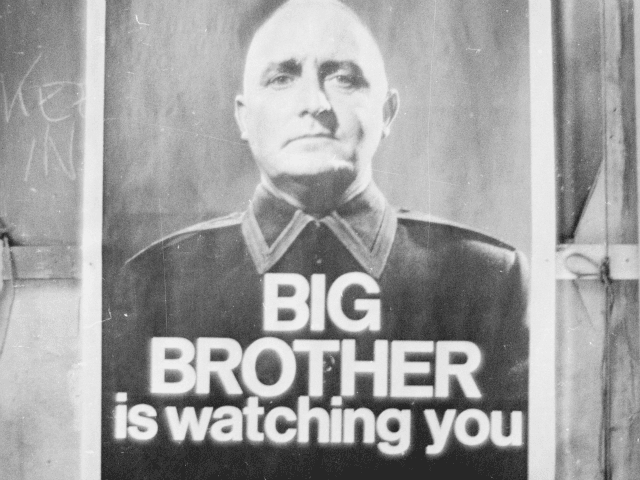The BBC’s Green Gestapo has struck again – this time hauling one of its best loved presenters over the coals for having given voice to incorrect truths about climate change in a BBC Radio 4 documentary.
Quentin Letts, the censured journalist, has described his experiences here. He likens it to being airbrushed out of one of Stalin’s photographs: one minute, his documentary – about the Met Office – was freely available on the web; the next it had been written out of history. (But you can still read the full transcription here)
And all because some of the people he interviewed said a few disobliging – but perfectly accurate – things about the way Britain’s state-funded meteorological organisation has been hijacked by climate change alarmists.
In his piece, Letts chooses to be mildly amused by the BBC’s high-handed response to his journalism.
Meanwhile, the BBC top brass held meetings about my allegedly scandalous programme.
Apparently we should have done more to explain the science of climate change. There was a danger that listeners were ‘misled’ by my interviews with Mr Lilley and Labour MP Graham Stringer, who argued that the Met Office were ‘excellent’ at short-term forecasts but ‘very poor’ at climate and medium-term predictions.
I was on the naughty step. That was the last I thought of the matter until last month, when I received a long document from the BBC Trust — a draft of an official inquiry into my misdeeds, complete with a conclusion that there had been a ‘serious’ breach of BBC rules on impartiality in my programme. I was given a few hours to offer any comments before the finding was likely to be made public.
The report, which must have cost thousands of pounds to prepare (rather more than was spent on our programme, I’d wager), included news that from the outset of the production process it had been agreed that we would never touch on climate change.
Er, hang on, chaps. No one ever told me that. Why on earth would independent journalists accept such a stricture? Why should climate change be given such special protection?
Read the BBC Trust’s 20-page report into the incident, however, and you begin to appreciate why it was that George Orwell modelled his Ministry of Truth in Nineteen Eighty-Four on the BBC. Letts’s analogies to Stalin’s Soviet Union, you realise, are only slightly overdone.
Here, for example, is the entire department responsible for Lett’s programme being ordered to attend a re-education camp:
All programme makers in Religion and Ethics’ radio department would complete the BBC Academy’s Impartiality online training module, which included a substantial scenario on reporting climate change science.
Radio division was reviewing training records to ensure all relevant production staff had also completed this module.
Here, as Letts reported, is the programme being airbrushed out of history:
The programme would not be repeated in any form.
Here is the sclerotic, statist monolith that is the BBC binding itself in yet more red-tape procedural guaranteed not only to drive up costs but to make it even less likely that any department will be able to show flashes of originality or independent thought.
The Radio compliance form would be amended so that it would no longer only ask if a programme contained a personal view that was unbalanced, but would also include prompts for consideration of how impartiality had been achieved in a personal view programme.
Letts concludes in his piece that for all its egregious faults the BBC is an institution worth preserving.
This is a BBC — a Corporation worth defending, in my view, despite this ridiculous show-trial I have been through — that exists to be frank and fearless, to stand up to dictatorial forces, to divert and entertain while at the same time standing apart from Whitehall.
Using such a heavy steamroller to crush the life out of my no-doubt imperfect but innocent little programme is the behaviour not of a bastion of British liberalism, but an insidious and worrying threat to two very British qualities: common sense and freedom of expression.
I agree with his analysis but not his conclusion. It’s a bit like saying “What we should try to do is keep the good bits of Nazi Germany – the fabulous Hugo Boss uniforms, the amazing Nuremberg choreography, the train timetable, the spiffy tank design – but absolutely get rid of all the unpleasant stuff like the Jew hatred, the torture, the mass extermination, the military aggression….”
Er, no. Sorry, Quent but it just doesn’t work like that. The reason the BBC behaves like this is because behaviour like this is inevitable in an organisation accountable not to its audience but only to its own (impeccably progressive) bureaucracy.

COMMENTS
Please let us know if you're having issues with commenting.